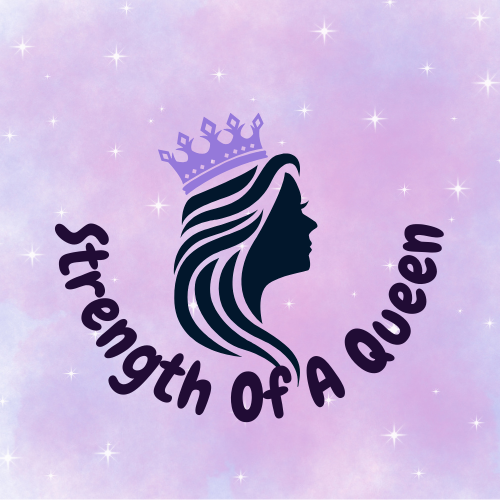Breaking the Silence: Domestic Violence, Culture, and the Path to Empowerment!
- strengthofaqueen

- Dec 31, 2024
- 3 min read
Updated: Jun 26, 2025

Domestic violence is a deeply rooted issue that transcends borders, cultures, and societal norms. For survivors, the journey to reclaim their lives can feel overwhelming, especially when cultural expectations and stigmas compound the pain. While it’s vital to acknowledge the gravity of abuse, it’s equally crucial to shine a light on empowerment, resilience, and recovery.
Understanding Domestic Violence Through a Cultural Lens
Domestic violence manifests in various forms physical, emotional, financial, and psychological abuse. Culture often plays a significant role in how abuse is perceived, addressed, or ignored.
Cultural Norms and Expectations: Many cultures uphold traditional gender roles that may inadvertently normalize controlling behaviour. For example, in patriarchal societies, a husband’s authority might overshadow a wife’s autonomy, making it difficult to recognize or challenge abuse.
Stigma and Silence: Fear of judgment or ostracization often prevents survivors from speaking out. This silence enables abusers especially narcissistic ones, to maintain control.
Intersectionality Matters: Race, ethnicity, religion, and socioeconomic status intersect with cultural factors, creating unique challenges for survivors. Recognizing these intersections can foster a more compassionate and inclusive approach to addressing domestic violence.
Spotlight on Narcissistic Abuse
Narcissistic abuse is a subtle yet devastating form of domestic violence. It’s characterized by manipulation, gaslighting, and an insidious erosion of self-worth. Understanding its dynamics is a critical step toward empowerment:
What is Narcissistic Abuse? Unlike overt physical violence, narcissistic abuse often hides in plain sight. The abuser seeks to control by undermining the survivor’s confidence and isolating them from support systems.
Cultural Factors Amplifying Narcissism: Certain cultures may inadvertently glorify narcissistic traits, such as dominance and entitlement, making it harder to identify the abuse.
Breaking Free: Survivors of narcissistic abuse often describe it as escaping a psychological labyrinth. Awareness and education are essential tools to dismantle the cycle of manipulation.
Actionable Insights for Survivors
No matter your background or experiences, you can take steps toward healing and empowerment. Here are practical strategies to help survivors rebuild their lives:
Acknowledge the Reality:
• Naming the abuse is the first step to reclaiming your narrative. Whether it’s physical violence or emotional manipulation, acknowledge what you’ve endured.
Seek Support:
• Connect with trusted friends, family members, or support groups who understand domestic violence and cultural nuances.
• Professional counselling, especially trauma-informed therapy, can be life-changing.
Educate Yourself:
• Learn about narcissism and abuse tactics to recognize patterns and protect yourself.
• Understand your rights and resources, including hotlines, shelters, and legal aid.
Establish Boundaries:
• Setting firm boundaries with your abuser and anyone who minimizes your experiences is crucial. These boundaries are acts of self-respect and self-preservation.
Rediscover Your Identity:
• Abuse often strips survivors of their sense of self. Reconnect with your passions, hobbies, and goals to rebuild your confidence.
The Role of Communities and Allies
Survivors are not alone in this fight. Communities and allies play a pivotal role in breaking the cycle of domestic violence. Here’s how:
Challenge Cultural Norms:
• Start conversations about gender roles, power dynamics, and abuse in your community. Awareness fosters change.
Listen and Believe:
• When survivors share their stories, listen without judgment. Validation can be incredibly healing.
Provide Practical Support:
• Offer help with childcare, transportation, or accompanying someone to court or counselling. Small acts can make a big difference.
Educate Yourself:
• Understand the signs of abuse and the unique challenges survivors face. Knowledge empowers action.
Empowerment After Domestic Violence
Empowerment isn’t just about survival; it’s about thriving. Here are ways survivors can reclaim their power:
Focus on Self-Care:
• Prioritize your physical, emotional, and mental health. Exercise, journaling, and meditation can help.
Build a Support Network:
• Surround yourself with people who uplift and inspire you. Avoid toxic relationships that drain your energy.
Learn and Grow:
• Pursue education or career opportunities that align with your dreams. Financial independence can be a powerful tool for freedom.
Share Your Story:
• Your journey can inspire others. Whether through blogging, speaking, or mentorship, your voice matters.
Turning Pain into Power
Domestic violence and narcissistic abuse are painful realities, but they don’t have to define your future as a survivor. By addressing cultural factors, seeking support, and embracing empowerment, survivors can break free and build lives full of purpose and joy.
Let’s continue to challenge the norms that perpetuate abuse and celebrate the resilience of survivors. Together, we can create a world where everyone feels safe, valued, and empowered to live their truth.



These are great tips, especially for communities and allies so that they're not just bystanders. Thanks for sharing!